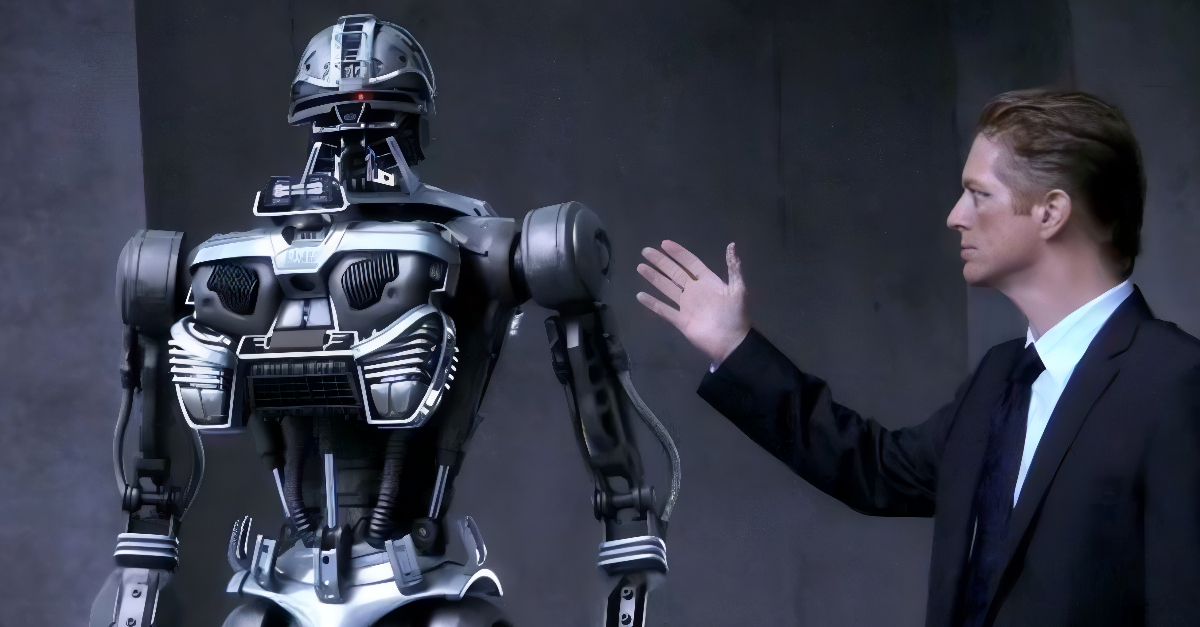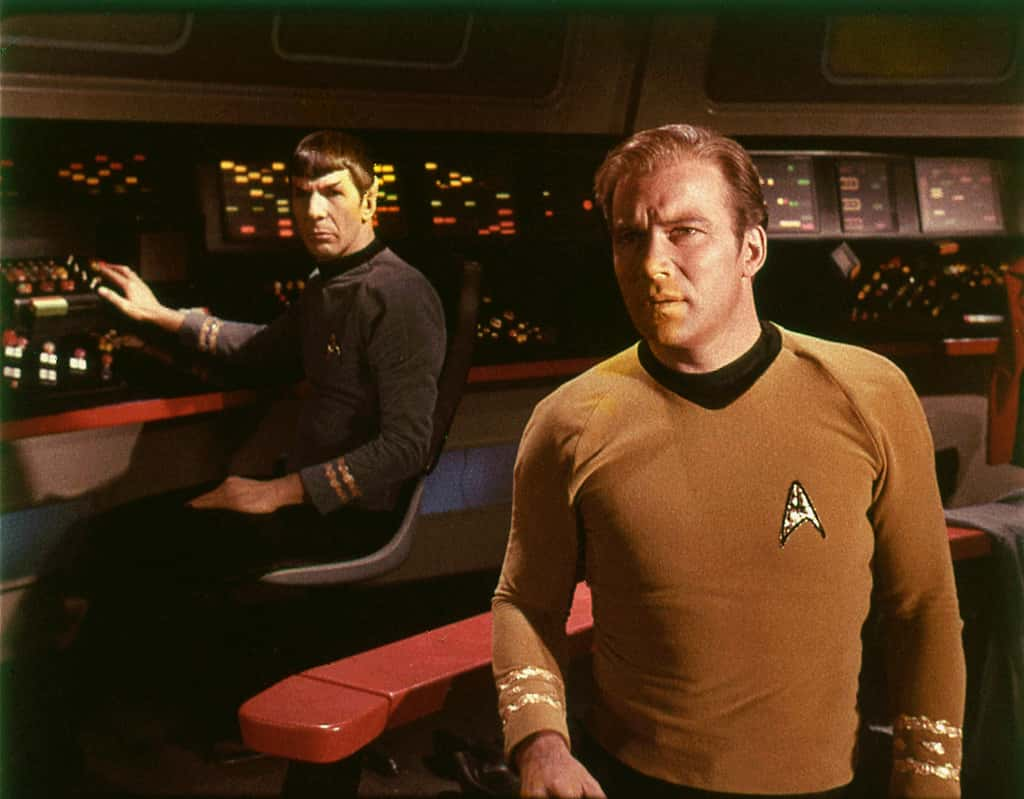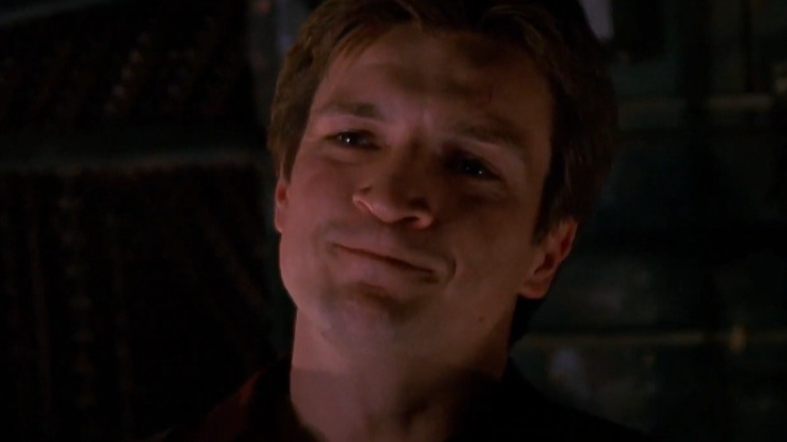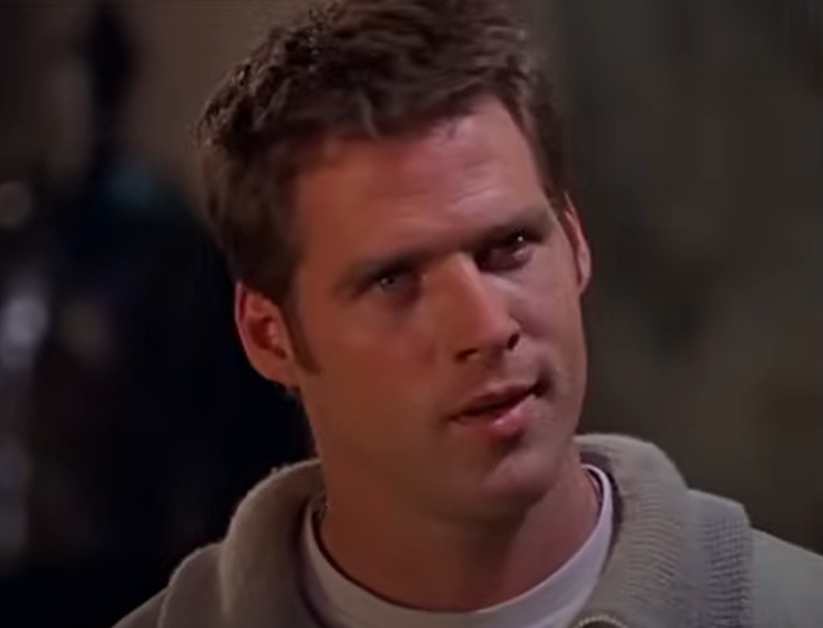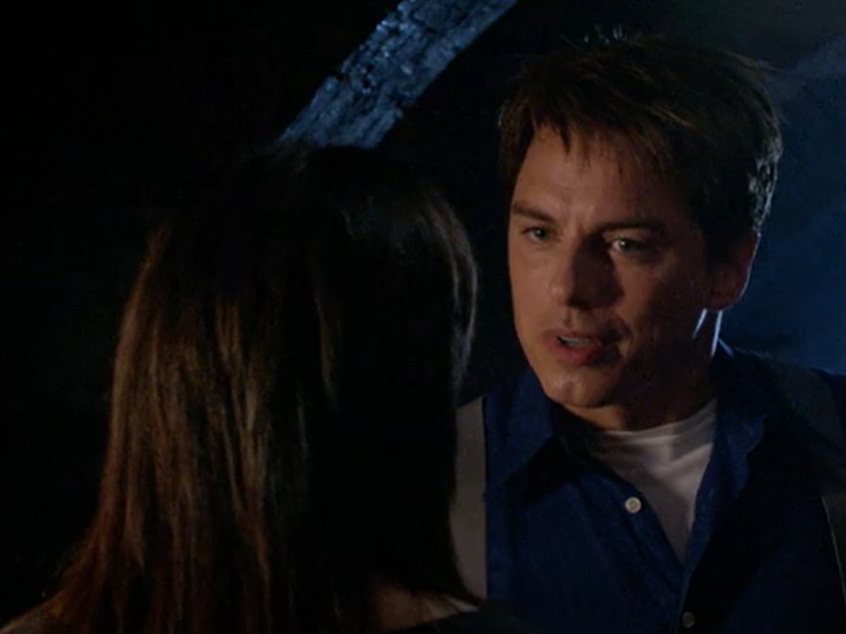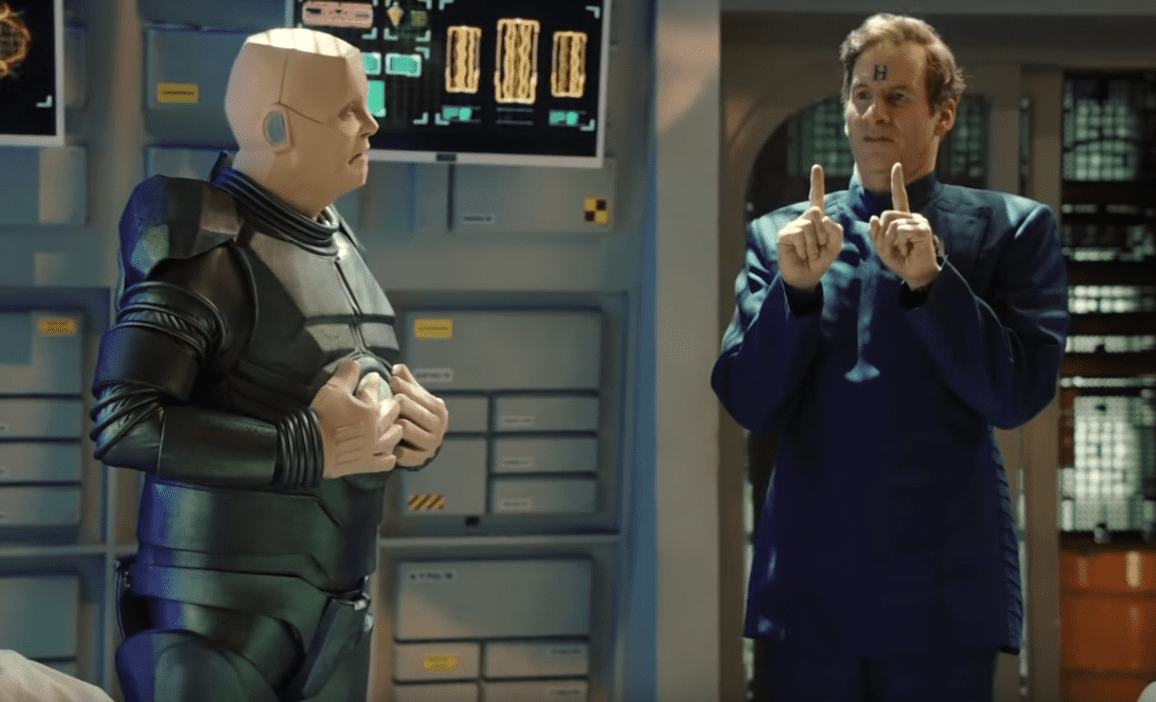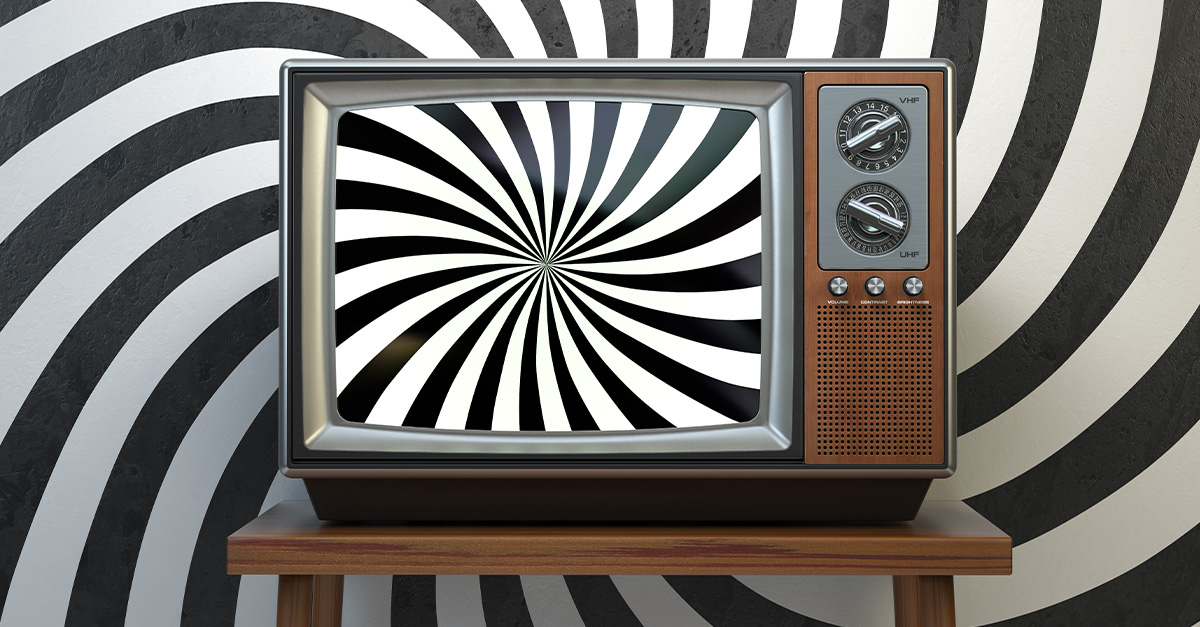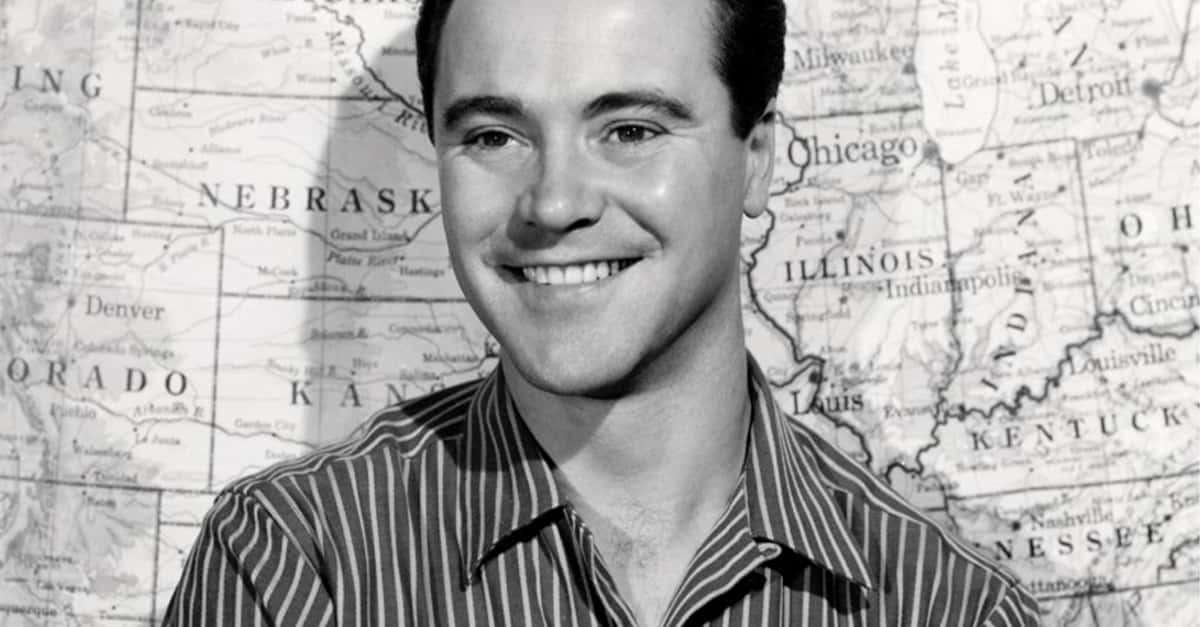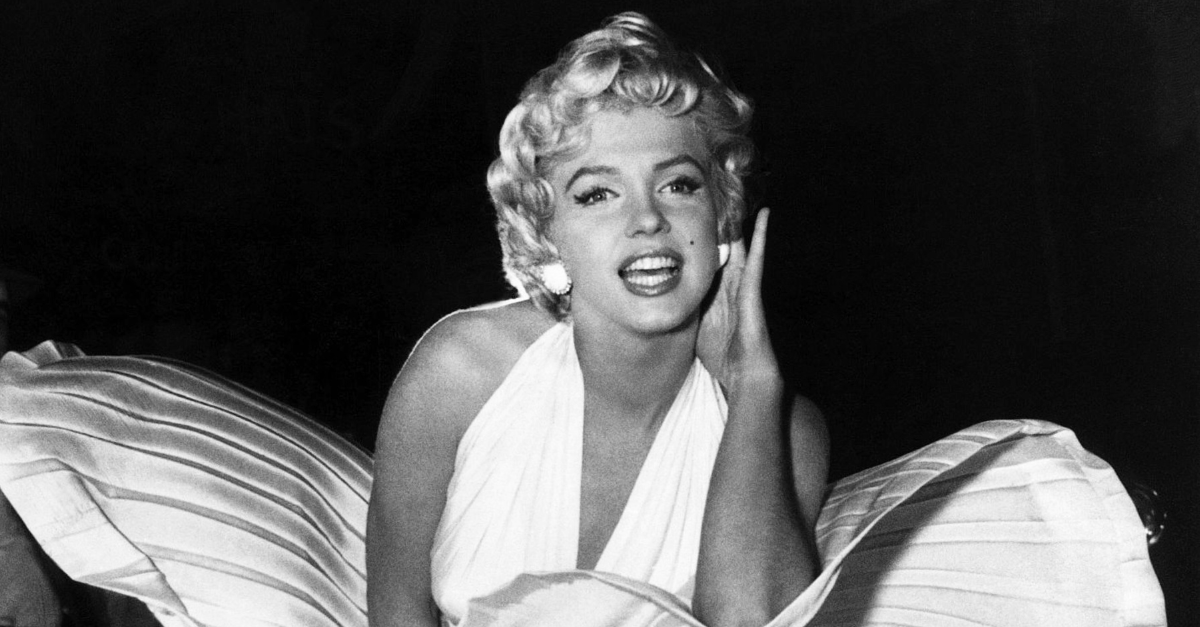Beam Us Up: Sci-Fi Shows That Still Shine Today
Some sci-fi shows are so ahead of their time that they still feel fresh decades later. From spaceship shenanigans to mind-bending dystopias, these series didn’t just entertain—they changed the game. Whether you’re rewatching as a nostalgic fan or diving in for the very first time—Here’s a lineup of the best sci-fi shows that still hold up.
Star Trek: The Original Series (1966–1969)
We gotta start with this one right?
Sure, the sets wobbled and the aliens looked like papier-mâché—and yet Star Trek still feels light-years ahead, even today. The big ideas—equality, exploration, diplomacy—hit harder than any phaser blast. Plus, Kirk, Spock, and McCoy’s banter is timeless. This isn’t just retro TV—it’s the blueprint for sci-fi as we know it.
Doctor Who (1963–present)
Wobbly sets gave way to galaxy-spanning adventures, and Doctor Who just keeps on regenerating—literally. Its ability to reinvent itself every few years keeps things fresh, whether you love the goofy camp of the classics or the darker tone of the modern runs. Time travel never goes out of style, and neither does the Doctor.
 BBC Studios, Doctor Who (1963–present)
BBC Studios, Doctor Who (1963–present)
The Twilight Zone (1959–1964)
Rod Serling’s eerie voice. Black-and-white tales of morality. A twist that makes your jaw drop. The Twilight Zone still nails it because the themes are universal—greed, fear, power, hope. Watching it today feels less like “old TV” and more like a mirror held up to humanity.
 CBS, The Twilight Zone (1959–1964)
CBS, The Twilight Zone (1959–1964)
Battlestar Galactica (2004–2009)
When the reboot of Battlestar Galactica dropped, it blew people away. Instead of cheesy robots, we got a tense, emotional, politically loaded masterpiece. The show asked tough questions about identity, survival, and faith—all while keeping you on the edge of your couch. It hasn’t lost an ounce of impact.
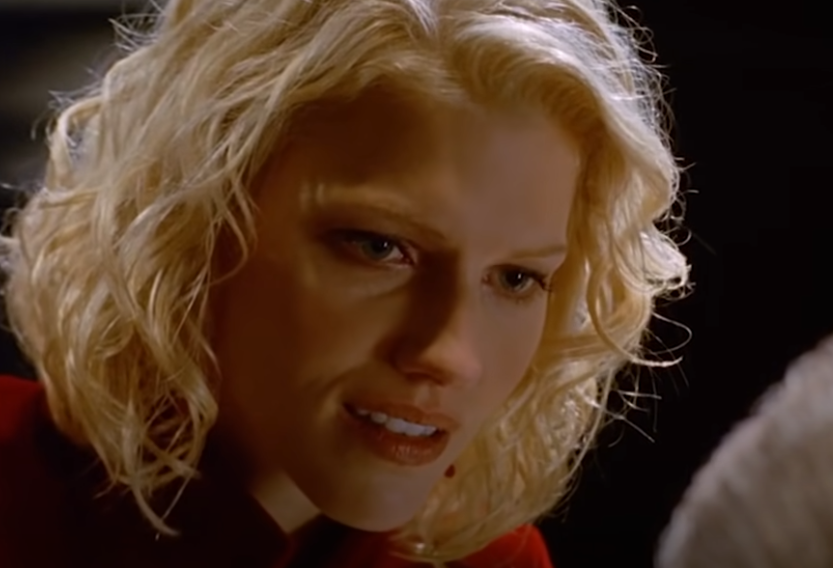 British Sky Broadcasting (BSkyB), Battlestar Galactica (2004–2009)
British Sky Broadcasting (BSkyB), Battlestar Galactica (2004–2009)
The X-Files (1993–2018)
Cigarette smoke, flashlight beams, and “the truth is out there.” The X-Files was spooky, funny, and oh-so-addictive. The mix of creepy standalones and conspiracy arcs still works perfectly. Plus, Mulder and Scully’s banter hasn’t aged a bit. This one makes you want to believe all over again.
Fringe (2008–2013)
What if science went too far? Fringe asked that—and then went even further. With parallel universes, weird experiments, and a mad scientist who loves his cow, it’s got everything a sci-fi fan craves. It’s twisty, heartfelt, and still feels fresh even years later.
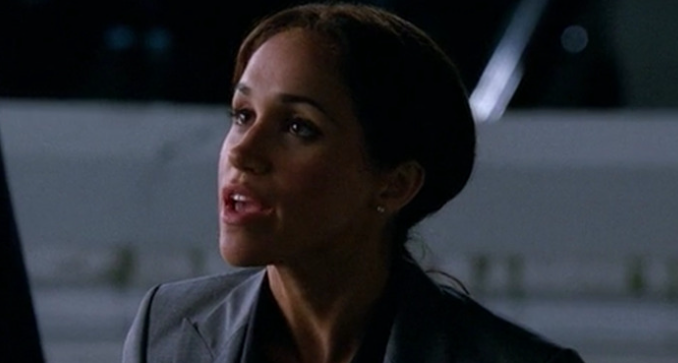 Warner Bros. Television, Fringe (2008-2013)
Warner Bros. Television, Fringe (2008-2013)
Firefly (2002)
It was canceled way too soon, but that almost made Firefly more legendary. Space cowboys, witty dialogue, and a ragtag crew you instantly root for—this show has charm in spades. It’s proof that one season (and a movie) can be enough to cement a show as an all-time classic.
Farscape (1999–2003)
Farscape is the weird cousin of the sci-fi family—and we mean that lovingly. With wild creature designs from Jim Henson’s team, zany humor, and surprisingly emotional arcs, it’s bold, bizarre, and brilliant. If you like your sci-fi with a side of “what did I just watch?” this still hits the spot.
Babylon 5 (1994–1998)
Before long-form storytelling was cool, Babylon 5 was already doing it. A five-season plan with politics, betrayal, and wars that actually paid off? That’s bold even now. Sure, the CGI looks dated, but the story arcs are so strong they outshine the pixels.
 Warner Bros., Babylon 5 (1994-1998)
Warner Bros., Babylon 5 (1994-1998)
Stargate SG-1 (1997–2007)
Take a cult-favorite movie, add ten seasons of adventures, and voilà—Stargate SG-1. It balanced mythology with humor, had great chemistry among the cast, and gave us endless “what’s behind the wormhole this week?” fun. It’s comfort sci-fi at its best.
 MGM Television, Stargate SG-1 (1997–2007)
MGM Television, Stargate SG-1 (1997–2007)
Star Trek: The Next Generation (1987–1994)
Picard, Data, Worf—this crew redefined what Star Trek could be. With philosophical debates, moral dilemmas, and the occasional Borg attack, TNG still feels relevant. It’s optimistic, thoughtful, and endlessly quotable. Make it so… again and again.
 Paramount Domestic Television, Star Trek: The Next Generation (1987–1994)
Paramount Domestic Television, Star Trek: The Next Generation (1987–1994)
The Expanse (2015–2022)
Realistic space physics? Check. Political intrigue? Check. Characters you actually care about? Double check. The Expanse is the hard sci-fi dream fans were waiting for, and even though it wrapped up recently, it’s already canon-worthy. Watch it once, and you’ll wish it never ended.
 Alcon Entertainment, The Expanse (2015-2022)
Alcon Entertainment, The Expanse (2015-2022)
Black Mirror (2011–present)
Dystopia has never felt so close to reality. Black Mirror holds up because it basically predicted half our tech nightmares. Each standalone episode is like a modern Twilight Zone for the smartphone generation—and it still manages to surprise, disturb, and stick with you.
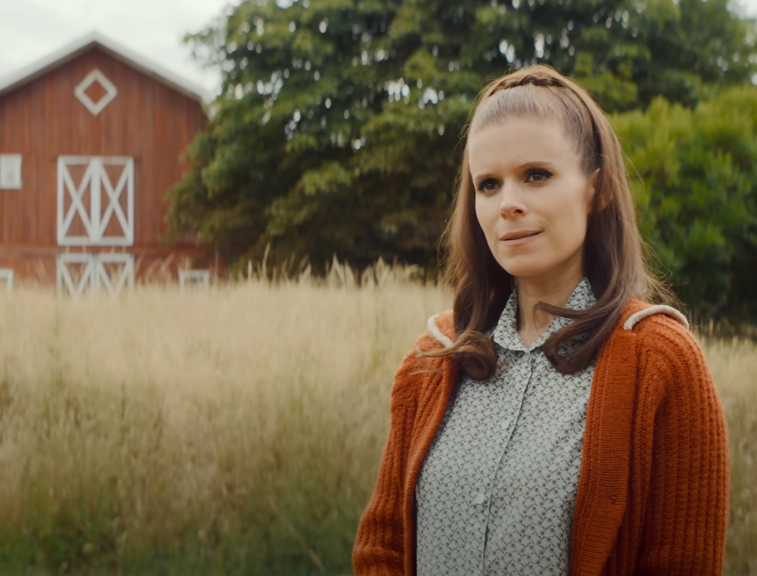 Netflix, Black Mirror (2011 - )
Netflix, Black Mirror (2011 - )
Quantum Leap (1989–1993)
Each week, Dr. Sam Beckett jumped into a new life, fixing mistakes while muttering, “Oh boy.” Quantum Leap is sci-fi with a heart, blending clever ideas with emotional payoffs. It’s equal parts brainy and heartfelt—and that’s why it’s still beloved.
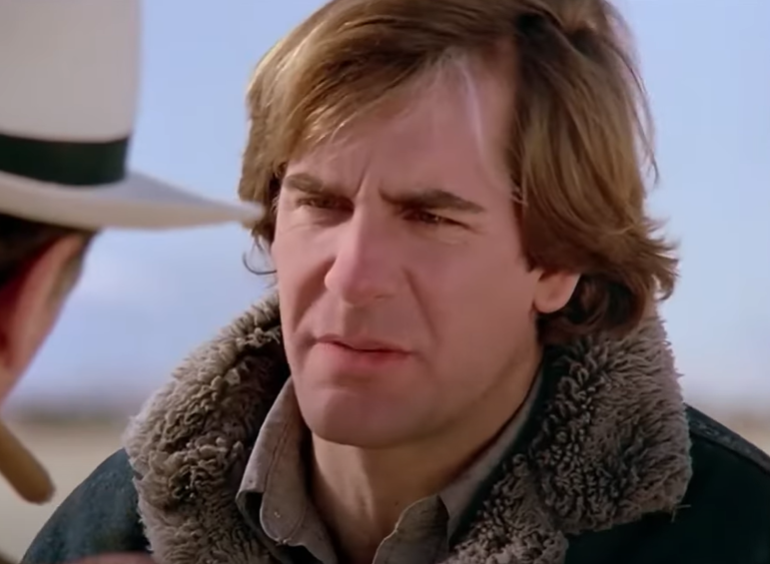 Belisarius Productions, Quantum Leap (1989–1993)
Belisarius Productions, Quantum Leap (1989–1993)
Lost (2004–2010)
Plane crash. Mysterious island. Smoke monster. Time travel. Lost was a genre blender that kept fans theorizing for years. Sure, the ending divides people, but the journey? Still an addictive rollercoaster. It showed how sci-fi could dominate mainstream TV.
 Disney–ABC Domestic Television, Lost (2004–2010)
Disney–ABC Domestic Television, Lost (2004–2010)
Torchwood (2006–2011)
A darker, edgier spinoff of Doctor Who, Torchwood wasn’t afraid to push boundaries. With mature themes and gut-punch story arcs—especially Children of Earth—it built its own legacy. It’s still one of the boldest and most emotional sci-fi series to come out of the U.K.
Stargate Atlantis (2004–2009)
If SG-1 is the reliable comfort food, Atlantis is the exciting new recipe. The crew’s adventures in a whole new galaxy gave fans new villains, quirky characters, and lots of action. It’s lighter, funnier, and still a blast to revisit.
 MGM Television, Stargate Atlantis (2004–2009)
MGM Television, Stargate Atlantis (2004–2009)
Star Trek: Deep Space Nine (1993–1999)
DS9 broke the Star Trek mold by planting its crew on a space station instead of a ship. With long arcs, moral gray areas, and the Dominion War, it proved Trek could go darker without losing its soul. Fans still call it one of the best.
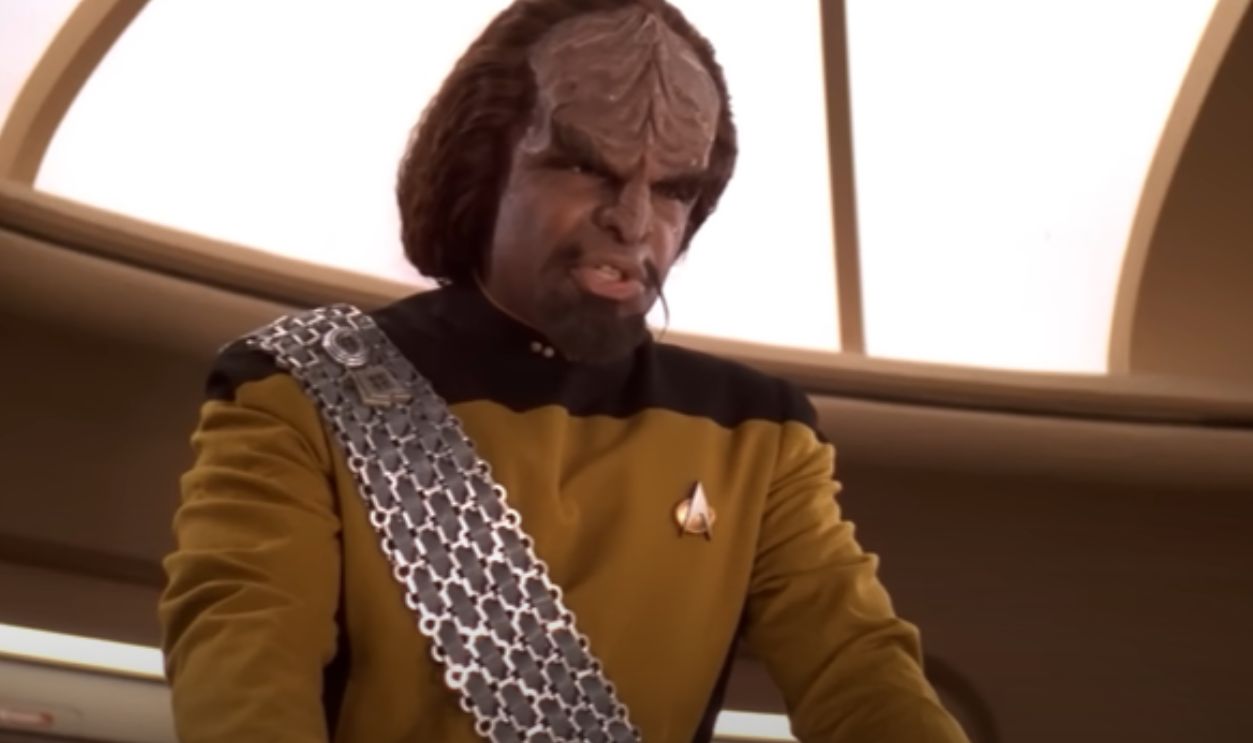 Paramount Domestic Television, Star Trek: Deep Space Nine (1993–1999)
Paramount Domestic Television, Star Trek: Deep Space Nine (1993–1999)
Stranger Things (2016–present)
Demogorgons, Eggo waffles, and kids on BMX bikes—Stranger Things nailed the ’80s nostalgia while crafting a genuinely scary and heartfelt sci-fi story. It’s still running, but it already feels like a modern classic that’ll be rewatched for decades.
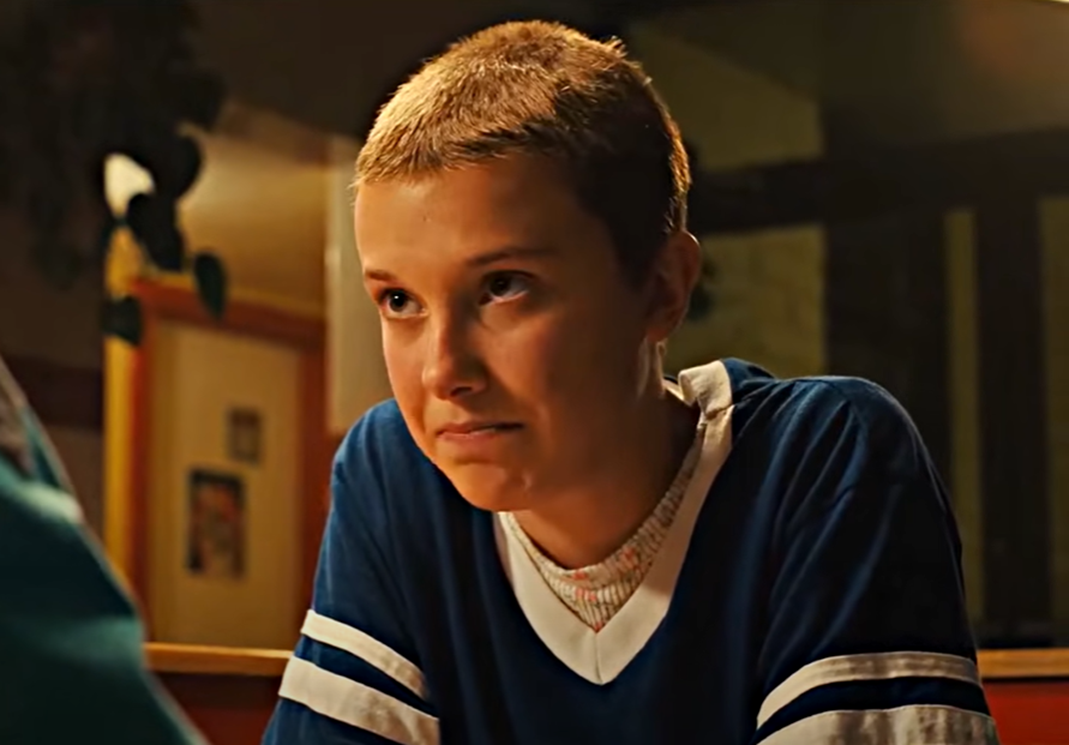 Netflix, Stranger Things (2016-)
Netflix, Stranger Things (2016-)
The Outer Limits (1963–1965; 1995–2002)
If The Twilight Zone was a mirror, The Outer Limits was a lab experiment. With aliens, morality tales, and “what if” scenarios, it was sometimes campy, sometimes profound. Both versions still hold up as smart anthologies that make you think long after the credits roll.
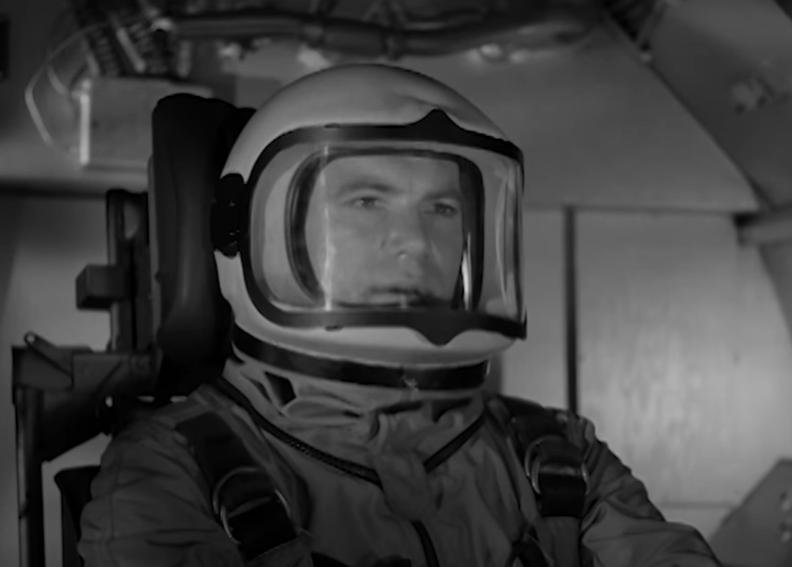 United Artists Television, The Outer Limits (1963–1965)
United Artists Television, The Outer Limits (1963–1965)
Person of Interest (2011–2016)
It started as a crime-of-the-week show, then morphed into a sci-fi powerhouse about AI, surveillance, and free will. Person of Interest feels more relevant every year, and its character work makes the heavy themes hit even harder. It’s the rare show that got better with time.
 CBS, Person of Interest (2011–2016)
CBS, Person of Interest (2011–2016)
Dark (2017–2020)
Confusing? Absolutely. Brilliant? Definitely. Dark is the time travel show that makes your brain hurt in the best way. With its intricate timelines and emotional stakes, this German masterpiece still sparks debates long after its finale. A binge-watch that sticks with you.
Sense8 (2015–2018)
The Wachowskis gave us a global sci-fi epic about strangers psychically linked across the world. Sense8 was ambitious, diverse, and full of heart. Though short-lived, it’s still a unique gem—part sci-fi, part emotional rollercoaster—that fans continue to cherish.
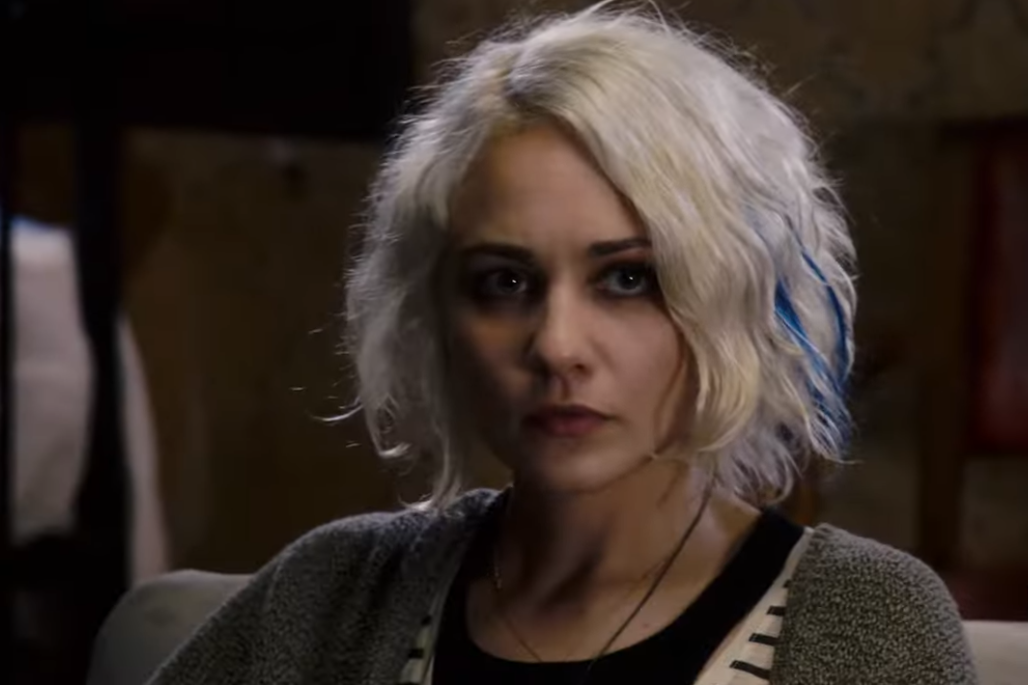 Anarchos Productions, Sense8 (2015-2018)
Anarchos Productions, Sense8 (2015-2018)
Caprica (2010)
Caprica took us back before Battlestar Galactica, exploring the rise of AI and human arrogance. It didn’t last long, but its meditations on technology, morality, and family drama make it worth revisiting. Think of it as a hidden prequel that still resonates.
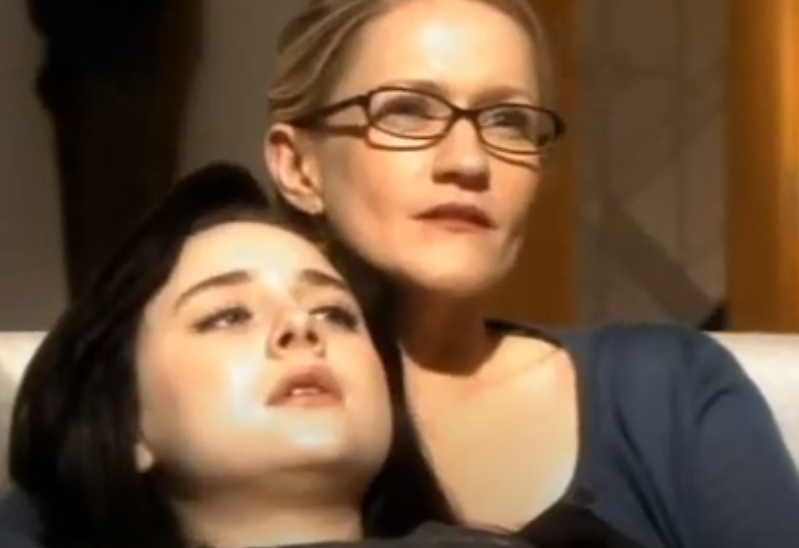 David Eick Productions, Caprica (2009–2010)
David Eick Productions, Caprica (2009–2010)
Altered Carbon (2018–2020)
Cyberpunk visuals. A world where consciousness can hop between bodies. Altered Carbon asked big questions about identity and mortality while looking ridiculously stylish. It was short-lived, but its bold ideas and neon-soaked aesthetic ensure it still feels ahead of its time.
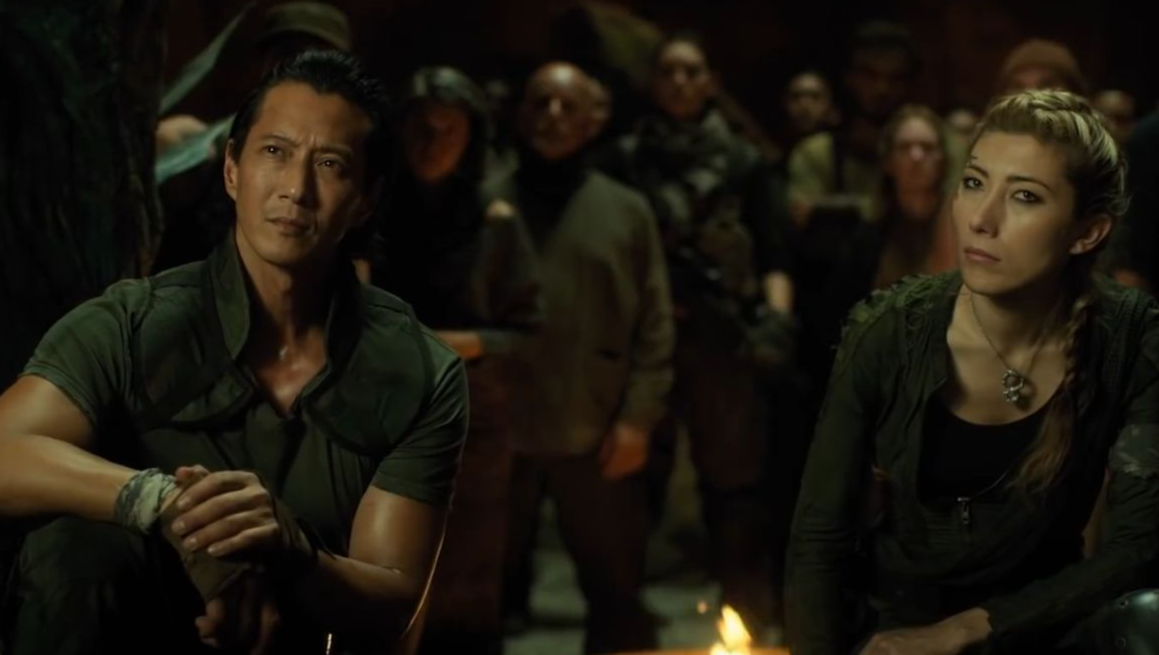 Netflix, Altered Carbon (2018–2020)
Netflix, Altered Carbon (2018–2020)
Westworld (2016–2022)
Robots in cowboy hats? Yes, please. The first two seasons of Westworld are mind-bending brilliance, exploring free will, AI, and reality itself. Even as the later seasons divided fans, the early arcs remain some of the smartest sci-fi storytelling on TV.
Lexx (1997–2002)
Lexx is straight-up bizarre. A giant bug spaceship, offbeat humor, and surreal adventures—it’s one of the most out-there sci-fi shows ever. It may not be everyone’s cup of tea, but its sheer weirdness makes it unforgettable and strangely timeless.
 Salter Street Films, Lexx (1997–2002)
Salter Street Films, Lexx (1997–2002)
Red Dwarf (1988–present)
What if the last human alive was stuck on a spaceship with a hologram, a robot, and a humanoid cat? That’s Red Dwarf. The British wit and absurdity make it endlessly rewatchable. Sci-fi comedy is hard, but this show nails it.
The Prisoner (1967–1968)
Surreal, mysterious, and stylish, The Prisoner is part spy thriller, part sci-fi fever dream. Its themes of control, freedom, and identity are still debated today. Number Six may have been trapped in the Village, but this show escaped time—it’s still iconic.
Misfits (2009–2013)
Take a group of juvenile delinquents, throw in superpowers, and watch the chaos unfold. Misfits was gritty, funny, and unpredictable, with flawed characters you couldn’t stop watching. It stood out by grounding sci-fi in raw, messy reality—and it still feels fresh.
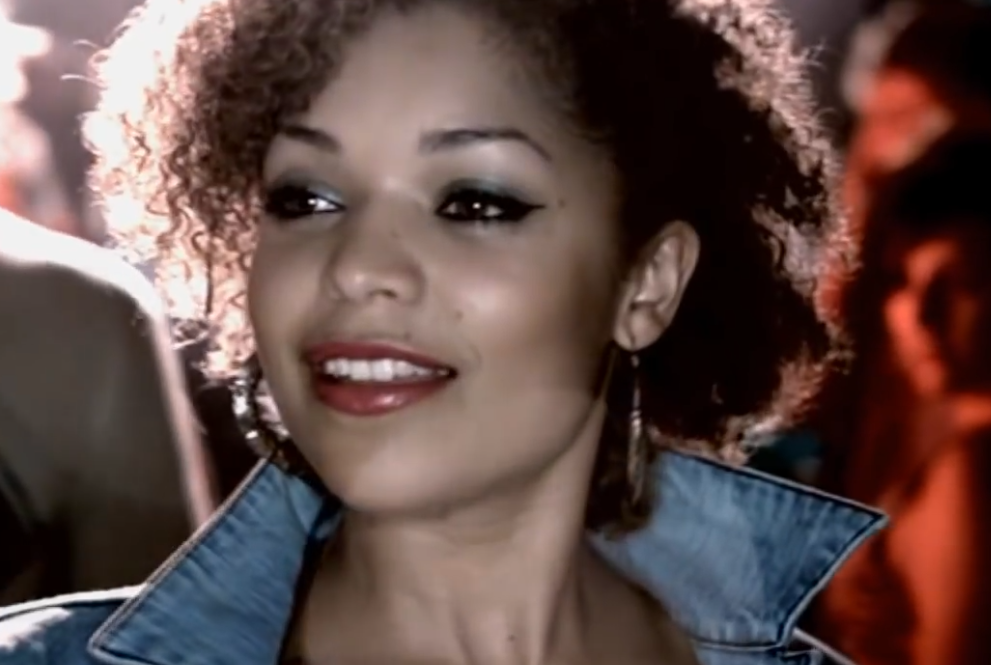 Clerkenwell Films, Misfits (2009-2013)
Clerkenwell Films, Misfits (2009-2013)
Colony (2016–2018)
Alien occupation meets human resistance—that’s Colony. With tense family drama and questions of loyalty, it made a classic premise feel new. Though underrated and cut short, it remains a gripping, under-the-radar sci-fi gem that deserves a second look.
 USA Network, Colony (2016–2018)
USA Network, Colony (2016–2018)
Heroes (2006–2010)
“Save the cheerleader, save the world.” Heroes season one was a lightning-in-a-bottle moment that felt groundbreaking at the time. Ordinary people discovering powers in a grounded, realistic way? Fans couldn’t get enough. The later seasons didn’t keep the same magic, but that first one? It absolutely still holds up.
Blake’s 7 (1978–1981)
Think of Blake’s 7 as the U.K.’s darker, scrappier cousin to Star Trek. With its gritty tone, morally gray characters, and a famously bleak ending, it was ahead of its time. Low-budget? Definitely. But the storytelling was bold, and it still has cult-classic status today.
Orphan Black (2013–2017)
One actress. So many clones. Orphan Black wowed audiences thanks to Tatiana Maslany’s jaw-dropping performances—each clone felt like a completely different character. The show blended bio-sci-fi thrills with emotional storytelling, and it still feels fresh. Honestly, it’s worth watching just to marvel at Maslany’s range.
 BBC America, Orphan Black (2013–2017)
BBC America, Orphan Black (2013–2017)
You Might Also Like:
Actors Who Lost Their Iconic Co-Stars And Never Recovered
25 Years Of The Matrix: Behind The Scenes Stories
Sources: 1, 2, 3

